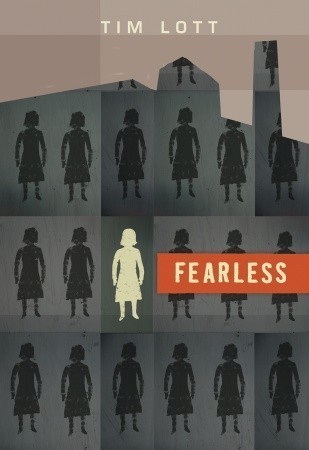What do you think?
Rate this book


263 pages, Paperback
First published January 1, 2007
Cross-posted from Nightjar's Jar of Books.
Little Fearless lives at the City Community Faith School, which claims to be a place of redemption and reform for troubled young girls. In actuality, the school is a prison for 1000 girls who have been taken from their families, and are forced to work in awful conditions and with no hope of ever leaving. But Little Fearless never gives up hope of one day being rescued, and always does her best to inspire all the girls around her to do the same.
What I saw in this book was something that was trying to have the emotional impact and level of social commentary as books like The Handmaid's Tale or Nicolas Dane, but which failed utterly at every turn. The characters were all one-dimensional; they each had a single characteristic, and you can identify that characteristic easily just by hearing their names (there's Beauty, who is beautiful, Tattle, who talks all the time, and so on, and so on).
But even apart from the characters, the story and setting were both so over-simplified as to sacrifice realism entirely (even though the power of good dystopian fiction lies in the horrifying thought that it's not completely impossible), and the big twist at the end was both clichéd and predictable. Additionally, although I found this in the YA section of my local library, it really ought to be aimed at younger children, as the reading level is really quite low, and the story not captivating enough to make up for it.
This all comes across as quite damning, but for the record, nothing about this book actively annoyed me, which is the only thing that's saved it from a one-star review (a book has to be really bad for me to only give it one star)... it's just boring. There's a huge amount of dystopian fiction out there these days, and I'd be hard put to it to find one that's less worth your time than Fearless.